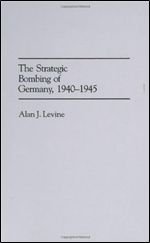The great controversy over the constitutional relationship of colony to mother country was only beginning. The same day that it repealed the Stamp Act, Parliament passed a Declaratory Act stating that the colonies were “subordinate” and that Parliament could enact any law it wished “to bind the colonies and people of America.”
To most Americans this bald statement of parliamentary authority seemed unconstitutional—a flagrant violation of their understanding of how the British imperial system was supposed to work. Actually the Declaratory Act highlighted the degree to which British and American views of the system had drifted apart. The English and the colonials were using the same words but giving them different meanings. Their conflicting definitions of the word representation was a case in point. Another involved the word constitution. To the British the Constitution meant the totality of laws, customs, and institutions that had developed over time and under which the nation functioned. If Parliament passed an “unconstitutional” law, the result might be rebellion, but that the law existed none would deny. In America, partly because governments were based on specific charters, the word meant a written document or contract spelling out, and thus limiting, the powers of government. If a law were unconstitutional, it simply had no force.
Even more basic were the differing meanings that English and Americans were giving to the word sovereignty. Eighteenth-century English political thinkers believed that sovereignty (ultimate political power) could not be divided. Government and law being based ultimately on force, some “final, unqualified, indivisible” authority had to exist if social order was to be preserved. The Glorious Revolution in England had settled the question of where sovereignty resided—in Parliament. The Declaratory Act, so obnoxious to Americans, seemed to the English the mere explication of the obvious. That colonial governments had passed local laws the English did not deny, but they had done so at the sufferance of the sovereign legislative power, Parliament.
Given these ideas and the long tradition out of which they had sprung, one can sympathize with the British failure to follow the colonists’ reasoning (which had not yet evolved into a specific proposal for constitutional reform). But most responsible British officials refused even to listen to the American argument.




 World History
World History




![Road to Huertgen Forest In Hell [Illustrated Edition]](https://www.worldhistory.biz/uploads/posts/2015-05/1432477693_1428700369_00344902_medium.jpeg)




